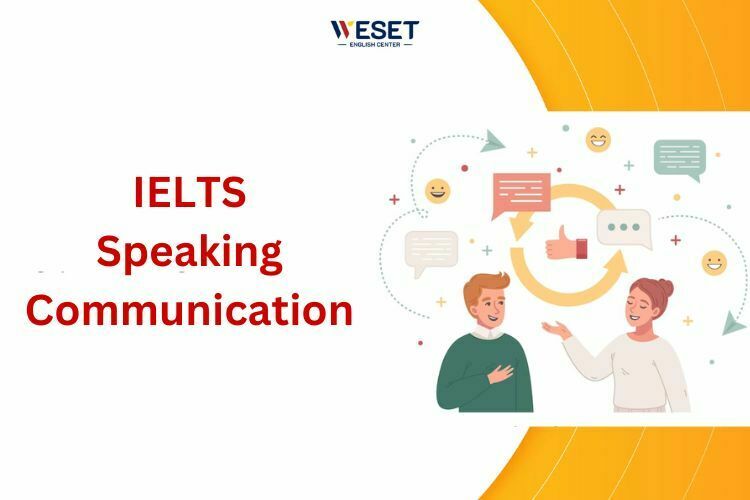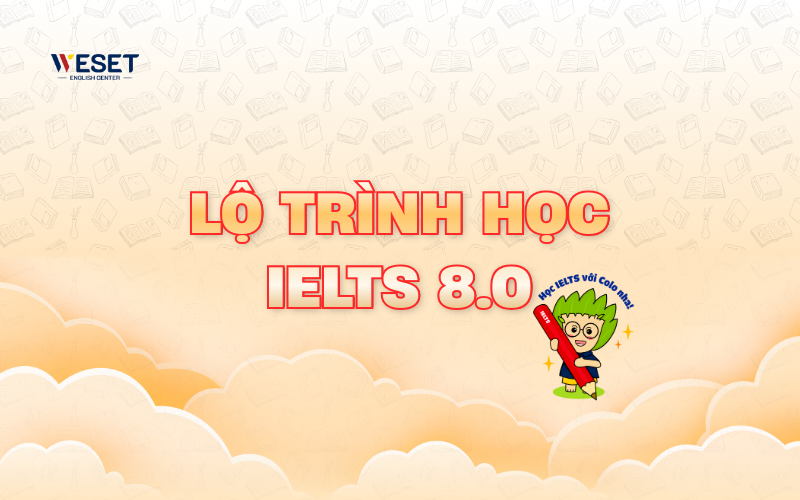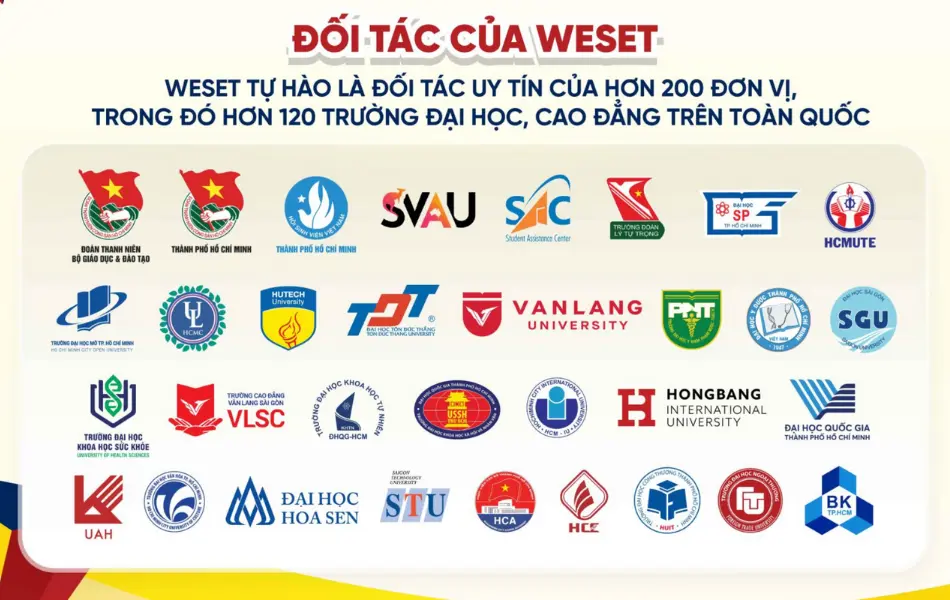Trang chủ Blog Bài thi IELTS mẫu IELTS Speaking Communication: Part 1, 2 & 3 Sample
IELTS Speaking Communication: Part 1, 2 & 3 Sample
- Jonathan M. Pham
- Bài mẫu IELTS Sample Speaking, Bài thi IELTS mẫu
MỤC LỤC
Trở lại series bài mẫu Speaking IELTS hôm nay, hãy cùng WESET khám phá topic IELTS Speaking Communication bạn nhé!
IELTS Speaking Communication – Part 1
Q1: Do you prefer to communicate with people face-to-face or through technology like smartphones and computers? Why?
A1: I believe that both face-to-face and technological communication have their merits, but my preference leans towards face-to-face interactions. When you communicate in person, you can pick up on non-verbal cues like body language and facial expressions, which can convey a lot of information that might be missed in digital conversations. Additionally, face-to-face communication allows for a deeper and more genuine connection with others.
Q2: How often do you use social media to communicate with your friends and family?
A2: I use social media quite regularly to stay in touch with friends and family. It’s a convenient way to share updates, photos, and even have group chats to coordinate plans or discuss various topics. However, I also make an effort to have in-person interactions because I value the richness of real-life connections.
Q3: In your opinion, what are the key skills required for effective communication?
A3: Effective communication requires several key skills. First and foremost is active listening. It’s crucial to genuinely listen to what the other person is saying rather than just waiting for your turn to speak. Clarity in expressing ideas and thoughts is also vital, as it ensures that your message is understood. Empathy plays a significant role too, as understanding and considering the other person’s perspective fosters better communication. Lastly, adapting your communication style to the audience and situation is essential for successful interactions.
Q4: How has technology changed the way people communicate in recent years?
A4: Technology has had a profound impact on how people communicate in recent years. With the advent of smartphones and the internet, communication has become faster and more accessible. We can now connect with people from around the world in real-time through video calls, instant messaging, and social media platforms. However, there are also concerns about the potential loss of face-to-face communication skills and the spread of misinformation in the digital age.
Q5: Can you give an example of a time when effective communication helped you in a challenging situation?
A5: Certainly, there was a time when I had to resolve a conflict within my team at work. Instead of escalating the issue, I initiated a calm and open conversation with all parties involved. By actively listening to their concerns, acknowledging their perspectives, and proposing a mutually beneficial solution, we were able to reach a consensus and mend our working relationships. This experience reinforced my belief in the power of effective communication to overcome challenges.
IELTS Speaking Communication – Part 2
Describe a memorable communication experience you had with someone. You should say:
- Who you communicated with.
- When and where this communication took place.
- What the communication was about.
- How this communication made you feel.
Answer:
One of the most memorable communication experiences I had was with my grandfather a few years ago. It took place during a family gathering at my grandparents’ house on a warm summer evening.
I remember sitting on the porch with my grandfather, looking out at the beautiful sunset. We were discussing his experiences during his younger years, particularly his time in the military. The conversation was centered around his service in World War II and the challenges he faced during that time.
This communication made me feel an overwhelming sense of admiration and respect for my grandfather. Listening to his stories, I gained a profound appreciation for the sacrifices he and his comrades made for our country. It was a heartwarming experience to connect with him on a deeper level and to learn about his life in a way I never had before. His stories were not only informative but also emotionally moving, and it left me with a deep sense of gratitude for the opportunity to communicate with him in this manner.
Overall, this communication experience with my grandfather remains etched in my memory as a special and touching moment that strengthened our bond and provided me with valuable insights into our family history.
IELTS Speaking Communication – Part 3
Q1: How important is effective communication in today’s workplace?
A1: Effective communication is absolutely crucial in today’s workplace. It’s the cornerstone of successful teamwork, efficient problem-solving, and fostering a positive work environment. Without clear and efficient communication, misunderstandings can arise, leading to errors, conflicts, and decreased productivity. Moreover, as workplaces become more diverse and globalized, the ability to communicate effectively with people from different backgrounds and cultures is increasingly important.
Q2: In what ways has technology improved or hindered communication in the modern world?
A2: Technology has brought both improvements and challenges to communication. On one hand, it has significantly improved the speed and convenience of communication. We can now connect with anyone, anywhere, at any time, which is incredibly beneficial for business and personal relationships. However, it has also introduced issues like information overload, the erosion of face-to-face communication skills, and concerns about privacy and security. Therefore, while technology has enhanced communication in many ways, it’s essential to strike a balance between digital and in-person interactions.
Q3: How does effective communication contribute to resolving conflicts?
A3: Effective communication plays a pivotal role in resolving conflicts. When individuals involved in a dispute can express their concerns and feelings openly and honestly, it paves the way for better understanding. Active listening and empathizing with the other party’s perspective are crucial in this process. Through constructive dialogue, conflicts can be de-escalated, and mutually acceptable solutions can be reached. Effective communication helps bridge gaps in perception and promotes compromise, ultimately leading to conflict resolution.
Q4: In what ways can schools and educational institutions promote better communication skills among students?
A4: Schools and educational institutions have a significant role in promoting better communication skills among students. They can do this by integrating communication-focused curricula, emphasizing activities like debates, group discussions, and presentations. Additionally, teachers should create a supportive and inclusive classroom environment that encourages students to express themselves freely. Providing constructive feedback and opportunities for public speaking can also help build confidence in communication. Ultimately, schools should not only focus on academic knowledge but also on nurturing students’ interpersonal and communication skills, which are essential for success in the real world.
Q5: How can individuals improve their communication skills in their personal and professional lives?
A5: Individuals can improve their communication skills by practicing active listening, which involves giving their full attention to the speaker and seeking to understand their perspective. They can also work on clarity and conciseness in their own communication, ensuring that their messages are easily understood. Taking courses or workshops on communication can be beneficial, as well as seeking feedback from colleagues, friends, or mentors. Finally, it’s important to remember that improving communication is an ongoing process, and individuals should be open to learning and adapting their communication style to different situations and audiences.
Từ vựng IELTS Speaking Communication Vocabulary
| English | Vietnamese (Tiếng Việt) |
|---|---|
| Communication | Giao tiếp |
| Face-to-face | Trò chuyện trực tiếp |
| Technology | Công nghệ |
| Social media | Mạng xã hội |
| Active listening | Lắng nghe tích cực |
| Non-verbal cues | Dấu hiệu phi ngôn ngữ |
| Body language | Ngôn ngữ cơ thể |
| Facial expressions | Biểu cảm khuôn mặt |
| Instant messaging | Tin nhắn tức thời |
| Empathy | Sự đồng cảm |
| Miscommunication | Hiểu lầm trong giao tiếp |
| Information overload | Quá tải thông tin |
| Conflict resolution | Giải quyết xung đột |
| Compromise | Sự thoả thuận |
| Privacy | Sự riêng tư |
| Security | An ninh |
| Curriculum | Chương trình học |
| Public speaking | Diễn thuyết trước công chúng |
| Constructive feedback | Phản hồi xây dựng |
| Interpersonal skills | Kỹ năng giao tiếp cá nhân |
Lời kết
Trên đây là gợi ý câu hỏi & cách trả lời mẫu cho topic IELTS Speaking Communication. Hy vọng sau những chia sẻ trên đây, bạn đọc sẽ cảm thấy hứng thú và có động lực luyện tập thêm các chủ đề Speaking khác trong bài thi nói IELTS. Đừng quên đăng ký nhận bản tin và tham khảo thư viện bài mẫu của WESET để cập nhật các kiến thức bổ ích mới nhất bạn nhé!
Sample Speaking theo chủ đề khác:







